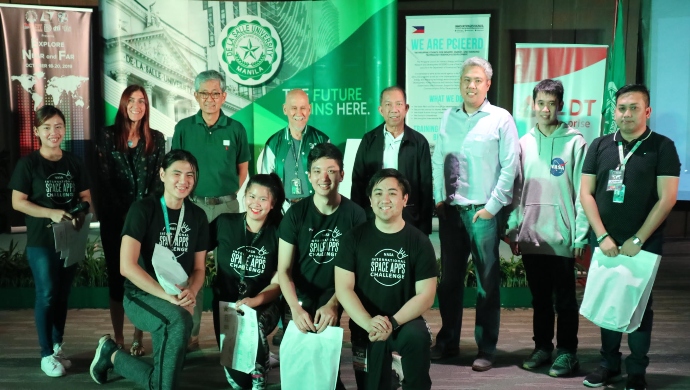
An ocean waste collector startup and a dengue mapper startup are chosen to join the NASA global hackathon.
The first startup called Ocean’s 4, developed a deployable, autonomous ocean waste collection system called PaWiKAN, utilising space data to locate nearby garbage patches was built by students from De La Salle University.
PaWiKAN uses NASA’s Ocean Surface Current Analysis Real-time (OSCAR) data to determine possible locations of ocean garbage patches using GPS. Its deployable system dynamically reconfigures boats capable of trapping and returning ocean waste back to the ground and correlates dengue cases with real-time data from satellite, climate, and search engines.
It is equipped with an extended-range radio system based on LoRa technology and Arduino to communicate with sensors and controlled by a deployment station. It was developed by Lasallian electronics and communications engineering students Samantha Maxine Santos, Antonio Miguel S. Alejo, Grant Lewis Bulaong, and Janos Lance L. Tiberio of Ocean’s 4, who also joined the last year’s hackathon, creating a hyper-casual puzzle game utilising images from the Hubble Space Telescope and intuitive physics concepts.
Also Read: Fintech in the Philippines: opportunities, challenges and why global participation is critical
It won the National Aeronautics and Space Administration’s International Space Apps Challenge last October 18-20, 2019 in Manila, in collaboration with the Philippine Council for Industry, Energy and Emerging Technology Research and Development of the Department of Science and Technology (DOST-PCIEERD), Animo Labs technology business incubator, PLDT InnoLab, American Corner Manila, the U.S. government, and part of the Design Week Philippines with Department of Trade and Industry-Design Center of the Philippines.
“Our global bodies of water are actually littered with plastics. This is a futuristic solution to help get rid of plastics currently floating or submerged in global waters. It is a timely and relevant solution,” according to Monchito B. Ibrahim, Industry Development Committee Chairman of the Analytics Association of the Philippines and former undersecretary of the Department of Information and Communications Technology.
Another Filipino startup chosen is the Aedes Project, composed of Dominic Vincent D. Ligot, Mark Toledo, Frances Claire Tayco, and Jansen Dumaliang Lopez. The Aedes Project team developed a forecasting model of dengue cases using climate and digital data and pinpointing possible hotspots from satellite data.
Correlating information from Sentinel-2 Copernicus and Landsat 8 satellites, DOST-PAGASA for climate, and trends from search engines, potential dengue hotspots will be displayed in a web interface. Indices like Fraction of Absorbed Photosynthetically Active Radiation (FAPAR) and Normalized Difference Vegetation Index (NDVI) are used in identifying areas with green vegetation while Normalized Difference Water Index (NDWI) to identify areas with water, revealing potential areas of stagnant water capable of being breeding grounds of mosquitoes.
“It benefits the community especially those countries suffering from malaria and dengue, just like the Philippines. I think it has a global impact. This is the new science to know the potential areas where dengue might occur. It is a good app,” said Engr. Raul C. Sabularse, deputy executive director of DOST-PCIEERD.
Also Read: These 9 names emerge as healthtech main players in the Philippines
Both champions will join teams around the world to be evaluated by NASA to approximately select the top 30 projects as global finalists in early December, and the top six winners will be announced in January 2020. Winners shall be invited to visit NASA’s Kennedy Space Center in Florida in 2020.
Last year, team iNON used a citizen science platform by NASA to develop an application seeking to communicate scientific data to fishermen even without an Internet connection, which led them to victory as the first Filipino global winner. Their project called ISDApp is currently being incubated by Animo Labs.
–
The post Filipino ocean waste collector, dengue mapper startups join NASA hackathon, leveraging space data as solutions appeared first on e27.